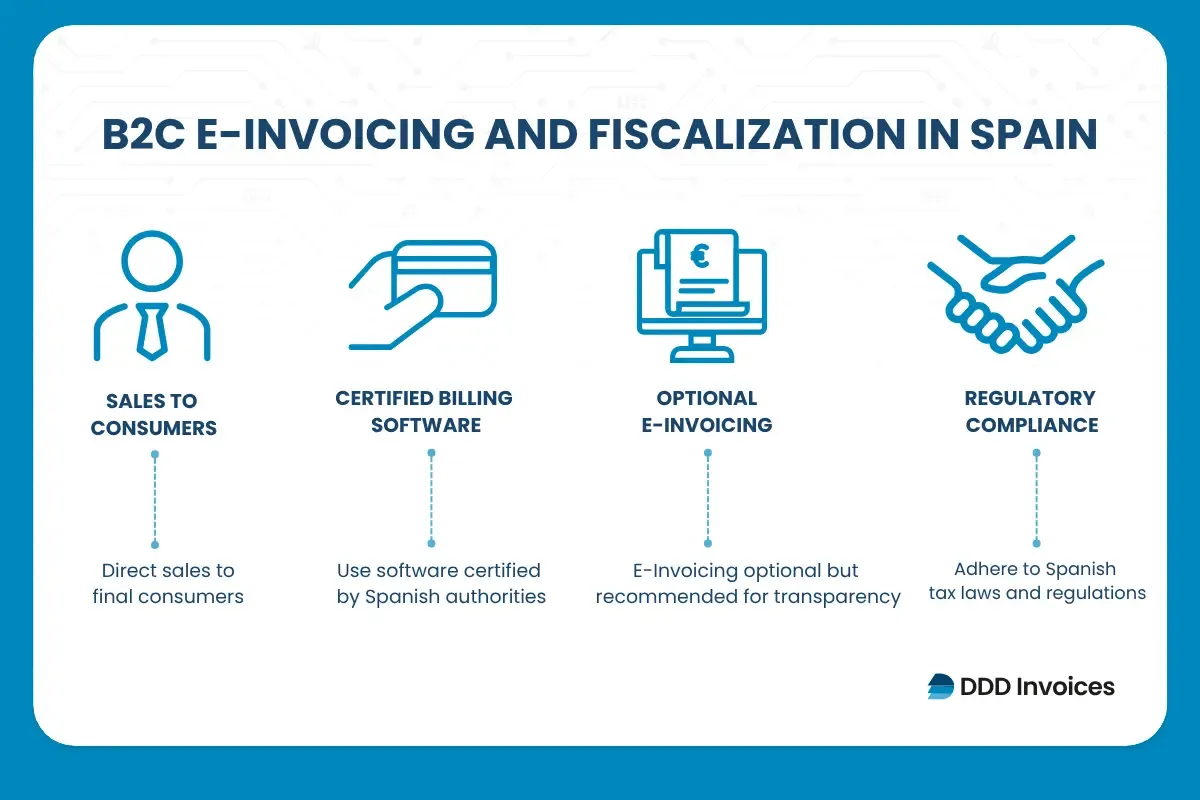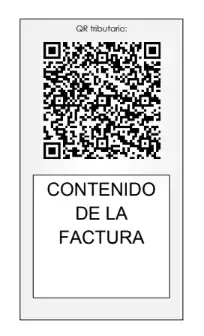Spain is rapidly shifting to electronic invoicing for all business transactions, making digital invoices the new legal standard. It is still in the early stages of e-invoicing adoption compared to the other countries or Central Europe. From large corporations to small local suppliers, every company must send and receive e-invoices using formats like FacturaE, typically via official platforms such as FACe for government billing.
Intending to streamline processes and improve efficiency, Spain joins many EU countries such as Serbia, Poland and Italy to promote the adoption of e-invoicing. Starting January 2027 for corporate taxpayers and July 2027 for all others, Spanish businesses must navigate a complex ecosystem of e-invoicing platforms, real-time reporting obligations, strict fiscalization and technical standards that will fundamentally reshape how invoices are created, transmitted, and processed across the Spanish economy.
Latest News
In 2024, Spain continued to expand its digital reporting framework by requiring companies with an annual turnover exceeding €6 million to comply with SII (Immediate Supply of Information) reporting. The mandatory B2B e-invoicing requirement, however, is still awaiting full implementation under the Crea y Crece Law.
The government requires the use of FacturaE format with XAdES digital signatures and QR codes to facilitate invoice tracking by tax authorities. Platforms like FACe (for B2G) and FACeB2B (for B2B) are central hubs for submitting invoices, but B2B e-invoicing is now still voluntary.
Spain has extended Veri*factu compliance deadlines through Royal Decree 254/2025, which modifies the earlier Royal Decree 1007/2023.
The update follows the late publication of Ministerial Order HAC/1177/2024, detailing the technical rules and giving software producers nine months to adapt.
Taxpayers already using the Immediate Information Supply (SII) VAT system are exempt from Veri*factu requirements.
Tired of scrolling through information about e-invoicing?
Start fast & easy by:
- Register on the platform as a software vendor or a end-client
- Start and complete the integration
- Send your first invoice into the test environment
- Switch to production!
Start free integration
What Is E-Invoicing and Why Is Spain Making It Mandatory?
Electronic invoicing means issuing invoices in a structured, machine-readable digital format instead of paper. Spain mandates e-invoicing to modernize tax processes, reduce VAT fraud, and speed up payments by enabling real-time tax authority validation. By requiring standards such as FacturaE and XAdES signatures, Spain aligns itself with EU Directive 2014/55/ and the European EN 16931 standard. This digital shift streamlines invoicing workflows, prevents manual errors, and ensures regulatory transparency throughout supply chains.
The Evolution of E-Invoicing in Spain
- January 15, 2015 - For B2G e-invoicing, it is mandatory to submit them electronically and ensure they are signed with an electronic signature utilizing a qualified certificate and printed invoices accepted for contracts less than €5,000
- September 2022: Spain approved the Crea y Crece Law, setting the foundation for Veri*factu and broader e-invoicing reforms.
- October 2024: Technical specifications for Veri*factu were published, including requirements for QR codes, electronic signatures (XAdES), and invoice traceability.
- April 2025: The first Veri*factu services became available for testing, giving businesses and software providers time to prepare.
- July 29, 2025: Deadline for software providers to offer Veri*factu compliant invoicing solutions.
- 1st Jan, 2027: Deadline for all Spanish legal entities to start Veri*factu invoicing.
FACe - Punto General de entrada de Facturas Electrónicas
FACe is a platform developed by the Spanish government to exchange electronic invoices between businesses and public administrations. It serves as a centralized system where companies can submit them to various public sector entities, such as government agencies, local authorities, and public corporations.
One of the key features of FACe is its interoperability, which allows invoices to be sent and received in different formats, such as FacturaE, UBL, and other common standards. FACe validates and registers the invoices, ensuring their integrity and compliance with legal requirements.
You do not need to know anything about e-invoicing standards or real-time reporting.
One single integration with our platform takes care of all of your current & future invoicing needs, everywhere.
Start free integrationB2G E-Invoicing in Spain
All invoices to public administrations must be electronic and submitted exclusively via the FACe platform. FACe requires the use of the FacturaE XML format with XAdES digital signatures to ensure authenticity.
While B2G invoices usually follow this FacturaE standard, Peppol is used mainly for B2B and cross-border transactions.
Since 2015, it is mandatory for invoices exceeding €5,000 sent to public entities to use FACe and FacturaE. This ensures legal clarity and efficiency for government suppliers.
B2B E-Invoicing in Spain
Crea y Crece (Law 18/2022) elaborates about mandatory e-Invoicing to B2B transactions. The current status of Crea y Crece is approved by the EU Commission and it initially stated that electronic invoicing in Spain in 2024 for large businesses and by 2027 for all companies will be mandatory. Now it seems this will be more the case in 2027 or 2028, depending on how successful the roll out of Veri*factu will be.
B2C E-Invoicing and Fiscalization in Spain
Currently, electronic invoicing is not mandatory for sales to consumers. Businesses usually issue paper receipts or simple invoices to individuals. However, companies may choose to use electronic invoicing voluntarily to improve billing speed and customer experience.
Regarding fiscalization, Spain requires all sales records, including B2C transactions, to comply with anti-fraud laws through certified billing software. This system, known as Veri*factu, mandates software that ensures every invoice and receipt issued at the point of sale is secure, traceable, and compliant with legal standards, with the appropriate QR code.
This fiscalization applies regardless of whether the invoice is electronic or printed, meaning that even B2C paper receipts must be issued through compliant systems to prevent tax evasion.
Handling Foreign and Cross-Border E-Invoices
Foreign businesses with a Spanish VAT number must comply with Spanish e-invoicing rules, submitting invoices via authorized platforms and using FacturaE or compatible formats.
Invoices must meet Spanish and EU standards, including EN 16931, and failure to comply may result in rejection or penalties. Spain participates in EU-wide efforts to promote interoperable electronic invoicing for seamless cross-border trade.
E-Reporting in Spain
Spain's SII (Suministro Inmediato de Información) system requires businesses with turnover over €6 million, VAT groups, and voluntarily registered entities to electronically submit sales and purchase invoice data to the Spanish Tax Agency within 4 calendar days (8 days via third parties). Submissions use standardized XML format through certified software..
Spain does not mandate routine SAF-T (Standard Audit File for Tax) reporting, but tax authorities can request OECD-compliant XML files during audits containing master data, transactional records, and VAT analysis.
Penalties for Non-Compliance
Failure to comply with electronic invoicing rules in Spain may result in fines up to €10,000 per invoice error or 1% of missed invoice amounts. Common violations include incorrect formats, missing digital signatures, absent QR codes, or inadequate archiving.
Repeat offenses or attempts to conceal information increase penalty severity and trigger audits. Using certified e-invoicing providers significantly lowers compliance risk.
Your Trusted E-Invoicing Partners in Spain
Navigating Spain’s evolving e-invoicing landscape requires reliable integration with platforms like FACe and FACeB2B, compliance with FacturaE and UBL standards, and adherence to real-time reporting obligations such as Veri*factu.
At DDD Invoices, we offer tailored solutions designed to simplify these processes, ensuring your invoice lifecycle, from creation and digital signing to transmission and archiving, meets all regulatory requirements efficiently and securely.
Our experience helps you manage Spain’s regulatory complexities confidently while optimizing operational workflows.
Still have questions?
Talk to us!
In the 30min free call we will discuss:
- your requirements in invoicing
- how integration works
- demo of the product
- next steps
Book a free 30min call
FAQs
When does mandatory B2B e-invoicing start in Spain?
E-invoicing is mandatory for companies with turnover over €8 million since 2024, and all businesses must comply by 2026.
What platform should I use to send invoices to Spanish government bodies?
Use the FACe portal for all B2G invoices, which requires FacturaE format and XAdES digital signatures.
Are digital signatures and QR codes required on Spanish e-invoices?
Yes, electronic invoices must use XAdES signatures and include QR codes to ensure authenticity and enable tracking by tax authorities.
Is B2C e-invoicing mandatory in Spain?
No, electronic invoicing for consumers is optional and not legally required. Businesses usually issue regular receipts or paper invoices to individuals.
What are the penalties for not complying with Spain’s e-invoicing rules?
Penalties can reach up to €10,000 per violation or 1% of the invoice amount. Repeat or intentional infringements may trigger audits and higher fines.






